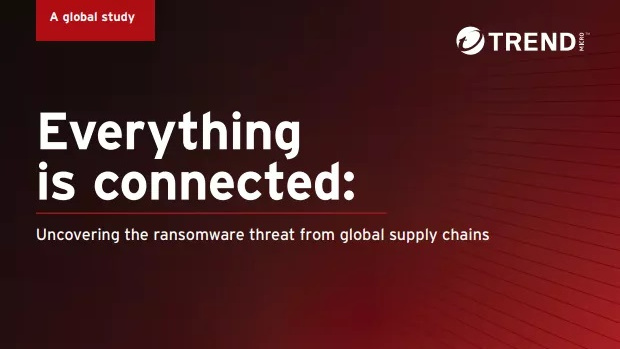Google AdWords 'targeted by phishers'
As a new phishing scam is revealed, it seems that the more Google's market share grows, the more profitable it is for criminals to target the company and its users.

A new phishing attack is targeting users of Google AdWords, intending to steal sensitive and confidential financial information.
Research released by security vendor Trend Micro suggests the attack begins with an email claiming that payment hasn't been successful and that the user needs to update their payment information, complete with a link to sign in.
The link displayed is the legitimate one, but clicking on it will send you to a unrelated compromised website which is hosted across different countries including Brazil, Romania and Canada.
Once you get to the fake website, which looks similar to the real AdWords web pages, you are prompted to type in your AdWords name and password (even though any combination would work).
From there you put in your credit card and personal details, with the info sent remotely using a remote server via an SSL connection.
Trend Micro said that attacks on the Google website were increasing due to its wide popularity, referring back to recent attacks on Google's calendaring system.
"In many ways Google can be seen as a victim of its own success," said Rik Ferguson, Solutions Architect at Trend Micro.
Get the ITPro daily newsletter
Sign up today and you will receive a free copy of our Future Focus 2025 report - the leading guidance on AI, cybersecurity and other IT challenges as per 700+ senior executives
"As their market share has increased along with the variety of products and services they offer, so their value to the cybercriminal as a platform to exploit has grown alongside it."
AdWords is one of Google's flagship advertising products and main sources of revenue, offering pay-per-click and site advertising. Trend Micro urged all customers and end-users to demonstrate caution.
The security company also said that users needed to be aware of how ambitious criminals were getting as profits could be big with very little threat of prosecution.
Ferguson said: "Cybercrime and Malware in today's world is big business, and one that increasingly closely resembles the world of legitimate business, right down to outsourcing, R&D budgets, Malware as a Service platforms, SLAs and even EULAs."
And of Google's potential in making money for phishers: "In this world of business it would definitely be fair to say that as the market share expands and the user base grows, so does the perceived 'investment potential' to the cybercriminal. It's all about 'Return on Investment'."
At the time of publication, Google had not responded to our requests for comment.
-
 Should AI PCs be part of your next hardware refresh?
Should AI PCs be part of your next hardware refresh?AI PCs are fast becoming a business staple and a surefire way to future-proof your business
By Bobby Hellard
-
 Westcon-Comstor and Vectra AI launch brace of new channel initiatives
Westcon-Comstor and Vectra AI launch brace of new channel initiativesNews Westcon-Comstor and Vectra AI have announced the launch of two new channel growth initiatives focused on the managed security service provider (MSSP) space and AWS Marketplace.
By Daniel Todd
-
 Exploitation of Docker remote API servers has reached a “critical level”
Exploitation of Docker remote API servers has reached a “critical level”News Hackers are targeting Docker’s remote access API as it allows them to pivot from a single container to the host and deploy malware with ease
By Solomon Klappholz
-
 Cyber criminal underground “thriving” as weekly attacks surge by 75% in Q3 2024
Cyber criminal underground “thriving” as weekly attacks surge by 75% in Q3 2024Cyber attacks reached another all-time high this quarter as digital crime continues to be a highly profitable industry for threat actors
By Solomon Klappholz
-
 Alarm raised over patched Phemedrone Stealer malware that's being used to target Windows PCs - here's what you need to know
Alarm raised over patched Phemedrone Stealer malware that's being used to target Windows PCs - here's what you need to knowNews Phemedrone Stealer is being used to exploit a vulnerability in Windows Defender SmartScreen despite the issue being patched in November 2023
By Solomon Klappholz
-
 SOC modernization and the role of XDR
SOC modernization and the role of XDRWhitepaper Automate security processes to deliver efficiencies across IT
By ITPro
-
 Uncovering the ransomware threat from global supply chains
Uncovering the ransomware threat from global supply chainsWhitepaper Effectively mitigate ransomware risk
By ITPro
-
 The near and far future of ransomware business models
The near and far future of ransomware business modelsWhitepaper Discover how criminals use ransomware as a cyberweapon
By ITPro
-
 Trend Micro security predictions for 2023
Trend Micro security predictions for 2023Whitepaper Prioritise cyber security strategies on capabilities rather than costs
By ITPro
-
 'Potentially unsecured' SMBs are propping up an IT supply chain riddled with ransomware
'Potentially unsecured' SMBs are propping up an IT supply chain riddled with ransomwareNews More than half of IT supply chains have been impacted by ransomware attacks in recent years and organisations are failing to implement the necessary steps to prevent future damage
By Connor Jones